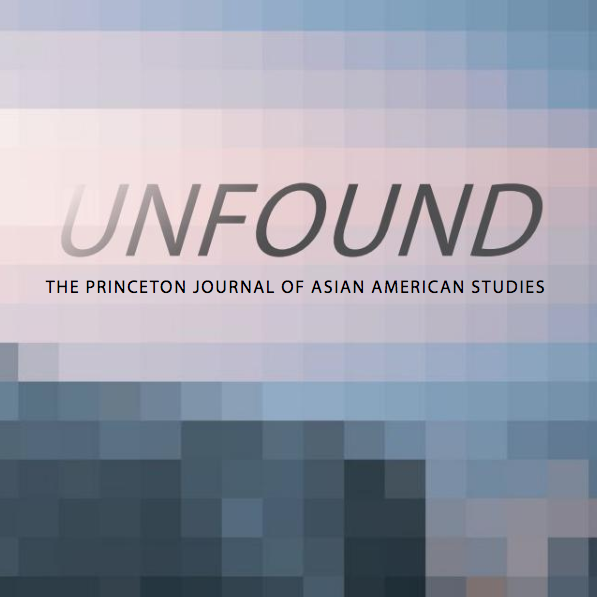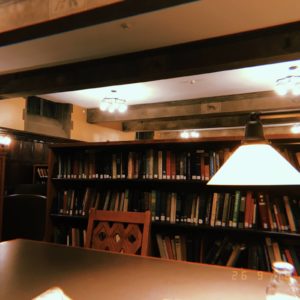While I’ve never taken online classes before at Princeton, this isn’t the first time where I’ve had to complete my semester at home. Last spring, I went home right after classes ended since all my final assignments were to be submitted online. Despite that working at home should have given me more time with fewer distractions, more often than not I found it incredibly difficult to focus on finishing the semester. With social-distance learning, I’ve been reflecting more on the problems I encountered last spring, and thought I’d share a few tips to help you stay focused during finals period, whether you’re working on those papers or studying for final exams!
Continue reading How to Stay Productive at Home During FinalsHow Poetry Has Shaped My Writing

After taking a lot of research and critical writing-based classes, I wanted to try doing something more relaxing and creative this semester. Since I wrote poetry in high school but never had the opportunity to take a formal poetry class, I decided to apply for CWR 202: Creative Writing – Poetry. However, unlike critical essays or research papers, poetry (and art in general) can deal with highly personal topics, and thus the thought of sharing my poems and having them openly critiqued by others felt quite nerve-wracking. However, I’ve been really enjoying this opportunity to reenter that creative space and have realized how relevant poetry can be to other genres of writing:
Continue reading How Poetry Has Shaped My WritingTips on Writing a Philosophy Paper for Non-Philosophy Majors
Last spring, I took PHI 203: Introduction to Metaphysics and Epistemology. I had never taken a philosophy class before in my life, and in the beginning it was difficult to wrap my head around the theories brought up in the readings and precept, let alone execute a coherent argument in a paper. Throughout the course, I learned a lot not just about the theories and arguments in philosophy, but about the distinct style of philosophical writing itself. In drafting the papers, I realized just how different writing a philosophy paper is compared to writing papers in other humanities and social science disciplines. This post contains some tips on how to approach a philosophy paper for those unfamiliar with the field:
Continue reading Tips on Writing a Philosophy Paper for Non-Philosophy Majors5 Tips on Writing an English Paper
As a prospective English major, I’ve written a handful of English papers and have tried to learn what makes some stronger than the others. While the best way to write an English paper may differ based on whether you are writing about a poem, novel, play, or essay, and whether you plan to take a purely textual, historical, theoretical, or comparative approach, some fundamentals are applicable to many English assignments. Here are just some tips you can keep in mind while crafting your next paper:
Continue reading 5 Tips on Writing an English PaperTips on Submitting Your Research for Publication: Part I
So you’ve finally finished grinding out those long Dean’s Date papers (yay!). While you may not want to look at them ever again, it’s nice to make good use of these essays even after the semester is over, especially considering all the time and effort you probably put into researching, drafting, and revising them.

One way to do this is to try to get your papers published in an academic research journal, including those affiliated with Princeton or independent journals. As a Co-Editor-in-Chief for Unfound, Princeton’s Journal of Asian American Studies, I review and edit submissions for our yearly issues. Through this experience, I’ve learned a lot about the selection process in academic publications. While the process may differ according to each journal, there are some general rules of thumb that are important to keep in mind while preparing an academic paper for submission.
Here are some things to consider when submitting your research for publication:
Continue reading Tips on Submitting Your Research for Publication: Part IResearch Resources: Unsung Heroes, An Interview with Writing Center Fellow Johanne Kjaersgaard ‘22
For this year’s Winter Seasonal Series, entitled Research Resources: Unsung Heroes, each correspondent has selected a faculty member, staff member, or peer working for a research resource on campus to interview. We hope that these interviews will provide insight into the variety of resources available on campus and supply the unique perspective of the people behind these resources. Here, Soo shares her interview.
~~~
As part of the Winter Seasonal Series, I interviewed Johanne Kjaersgaard ’22, an international student from Aarhus, Denmark. A prospective Politics major, she currently works as a Fellow at the Writing Center, one of the most widely-used academic support services on campus. Writing Center Fellows take on a variety of tasks, from guiding students in formulating and structuring papers to also offering advice to juniors and seniors in developing their senior theses and navigating their independent research projects.
Continue reading Research Resources: Unsung Heroes, An Interview with Writing Center Fellow Johanne Kjaersgaard ‘22Why You Should Join a Research Journal: An Interview with PURJ Co-Editor-in-Chief Jasper Lee ’21
Since coming to Princeton, I’ve become involved in diverse publishing and editing opportunities. One of the first undergraduate publications I joined was PURJ, the Princeton Undergraduate Research Journal. As a member of the Peer Review Board for PURJ, I learned more about the peer review process in academic research publications and had the opportunity to review manuscript pieces spanning incredibly diverse disciplines from the undergraduate body. In contrast to some other more specialized journals I’m involved in, such as Unfound, Princeton’s Journal of Asian American Studies, PURJ is a truly multidisciplinary publication that showcases work from the humanities, social sciences, natural sciences, engineering, and arts.
To learn more about the perks of being involved in a research journal, I interviewed Jasper Lee ’21, the current Co-Editor in Chief of PURJ. A molecular biology major, he first joined PURJ as a member of the Peer Review Board and then took on the role of Managing Editor of Peer Review. Here’s what Jasper shared about his experience with PURJ:
How to Survive a Writing-heavy Semester

It’s always recommended to balance your course workload appropriately with a good number of paper classes and problem set (p-set) classes. While it’s definitely not ideal, sometimes you just end up taking multiple classes with a demanding reading and writing workload–which means you can also end up with four or five final papers. Some students may actually prefer having only papers and no exams, and vice versa. Exams are a one-and-done deal, whereas final papers allow an indefinite amount of time and access to endless resources–but this can be stressful in its own way. Sometimes, you never know when you’re truly done with a paper, and it can be difficult to allocate time effectively when you’re juggling multiple written assignments.
Being a prospective English major, I tend to pile my coursework with a lot of reading and writing-heavy classes. Last spring, I took four humanities/social science classes and had four papers due for Dean’s Date. Needless to say, in the beginning I felt overwhelmed by the thought of having to write and polish several papers in what felt like not nearly enough time. As a general rule of thumb, I’ve learned that time management is especially crucial when having to complete multiple Dean’s Date assignments, and that planning ahead on your papers can make your life so much easier.
Aside from time management, here are some tips so that you can avoid feeling a sense of impending doom by the time Dean’s Date rolls around:
Working as a Latino History Research Assistant: An Interview with Emily Sanchez ’22
While students usually choose to seek research internships over the summer, some research opportunities are also available during the semester, such as working under a professor or graduate student to aid with their academic research. However, among these choices, it may often feel like there are especially limited research opportunities available for students pursuing majors in the humanities or social sciences. We often imagine research assistants as collecting and analyzing statistical data, examining Petri dishes in a lab, developing computer programs, and so forth, and so we may be more skeptical as to what kind of research non-STEM majors could possibly partake in.
To learn more about research opportunities during the semester in the humanities and social sciences, I interviewed Emily Sanchez ’22, who is currently working as a research assistant under Professor Rosina Lozano. Professor Lozano, an Associate Professor of History at Princeton, specializes in Latino history and the study of Latino cities in the U.S. As a research assistant, Emily has been examining 19th-century Spanish newspapers from the Southwest to understand more about the historical ties between ethnic Mexicans and indigenous communities in the region.
Here’s what Emily shared about her experience as a research assistant:
Continue reading Working as a Latino History Research Assistant: An Interview with Emily Sanchez ’22
The Art of Transforming Your Paper into a Presentation
Research does not end at simply conducting experiments or making a mind-blowing discovery in your academic field. It’s just as important—or perhaps even more so—to share your findings with others and to hear their thoughts on what you’ve discovered. Throughout your time at Princeton, you will come across multiple opportunities to present your research–whether it’s presenting at Princeton Research Day, drafting independent work proposals for advisors, showcasing your research from summer internships, or even just preparing presentations for class. Sharing your research is thus a common and necessary step in creating scholarly conversation, and can be a very rewarding and enlightening experience for you and for others. However, it can be challenging to find the most effective way to convey your knowledge and work to your audience.
This past April, I participated in the Mary W. George Freshman Research Conference, where I presented my paper “Racism in K-pop: A Reflection of South Korea’s Racialized Discourse of Beauty.” My paper was 16 pages long, and in the beginning, I had no idea how I would synthesize this into a 10-minute presentation. How do you condense a paper that long into just 10 minutes without losing the key points of your argument? Everything in my essay felt critical to my thesis, and yet I knew I couldn’t include every single point in my presentation.
Here are a few aspects that I focused on, which I think will be helpful in transforming your paper into a great presentation. Continue reading The Art of Transforming Your Paper into a Presentation

